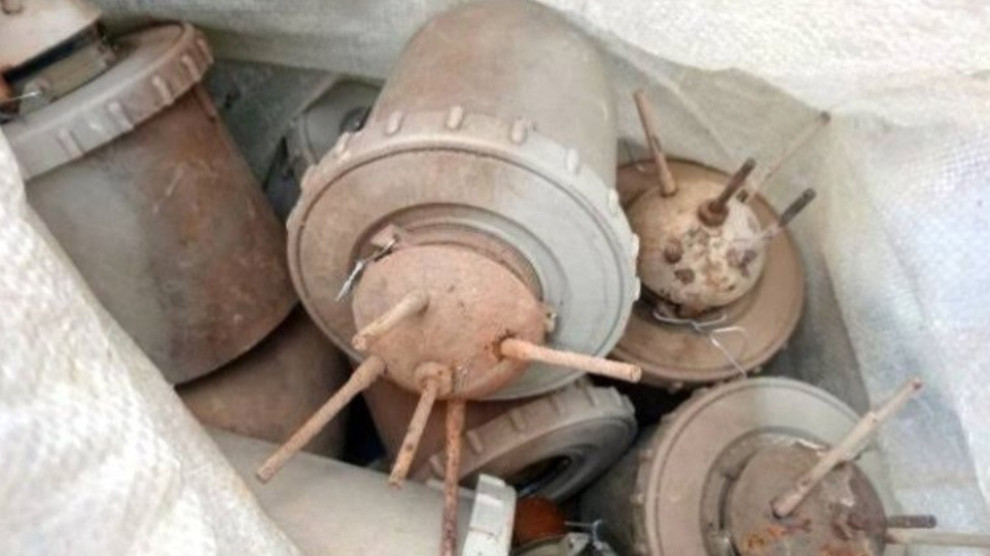Forty hectares of land cleared of mines in Shehba
In the northern Syrian canton of Shehba forty hectares of land have been cleared of mines and other ISIS legacies. Olive and pistachio trees are now to be planted there.
In the northern Syrian canton of Shehba forty hectares of land have been cleared of mines and other ISIS legacies. Olive and pistachio trees are now to be planted there.

In Shehba forty hectares of land have been cleared of mines and allocated for agricultural use. A large part of the region east of Afrin was occupied by the ISIS between 2013 and 2015 and was later freed by the YPG/YPJ. In the following years, dozens of people died in explosions of the booby traps left by the ISIS. In most cases, they were children playing. The situation became particularly dramatic in 2018, when hundreds of thousands of people from Afrin fled from the Turkish occupation forces to Shehba.
During the ISIS reign, olive plantations and agricultural land were also destroyed. The agricultural committee in the Shehba canton has now cleaned up forty hectares of land from the ISIS legacies and allocated it for use. The land can now be cultivated, and the water supply has also been secured. The committee has formed a tree nursery with 40,000 olive, pistachio and other shoots.
However, the construction work in Shehba is made more difficult by the continued attacks of the Turkish occupation forces. Every day shells are hitting the region. In addition, the self-governing area is cut off from the outside world, as the surrounding area is controlled by Syria, Turkey and Turkish-backed militias.
In war and conflict zones, minefields often pose a danger to the civilian population even years after the end of the fighting. Simple landmines are cheap, quickly laid and have almost unlimited lethality. Most victims are civilians.
US President Donald Trump has recently allowed the US armed forces to use landmines indefinitely. He lifted a restriction imposed by the previous government under Barack Obama, which had allowed the use of the internationally outlawed weapons only on the Korean peninsula for the defence of South Korea. The decision has been sharply criticized internationally.